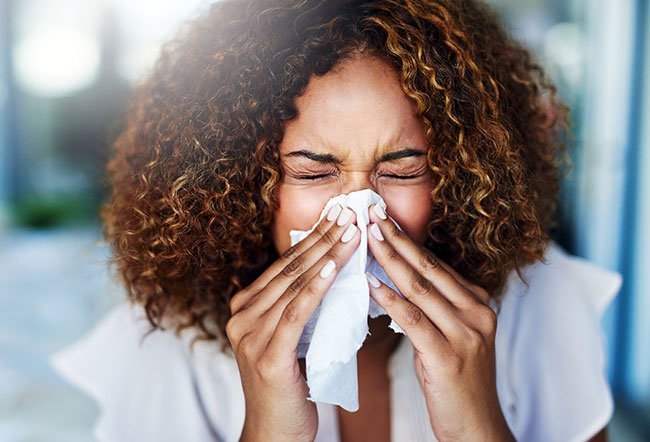
What Is An Allergy?
Allergies are caused by the immune system overreacting to a normally harmless substance. This substance, called an allergen, comes in a multitude of forms, from the pollen of a certain type of tree to an ingredient in a medicine, the dander of a puppy to a food like peanut. Not everyone has allergies. But among those who suffer from it, some are allergic to one thing in particular, while others react in very different ways to many different allergens.
Seasonal outdoor allergies (seasonal allergic rhinitis) and indoor allergies that last all year round (perennial allergic rhinitis) are among the most common allergies. People who sneeze and sniffle during only certain times of the year owe their symptoms to pollen. Tree pollen proliferates in the spring, while grass and weed pollen takes over in late summer and early fall. Indoor allergens like dust, mold, and pet dander can irritate eyes, nose and throat year round.
The basics of treating allergies
Sometimes it is not possible to avoid allergens or to avoid them enough to prevent bothersome symptoms of allergic rhinitis. In this case, it may be necessary to take medicine to treat your allergies.
There are many medications for people with allergies, including prescription and over-the-counter products. These include:
- drugs given by the intranasal route
- eye drops
- oral medications
- allergy shots
- nasal sprays and nasal rinse systems
Nasal medications are often prescribed to help relieve nasal symptoms. Several types of medicated nasal sprays are available, including decongestants, corticosteroids, and others. These medicines start to work within hours but may take up to a few weeks for maximum effect, depending on your symptoms.
Eye drops are available with or without a prescription for the treatment of dry and itchy eyes associated with allergies. Although these products provide quick relief from your symptoms, their effect does not last very long. Fortunately, you can use them as needed. Since bacteria can multiply in these eye drops, do not store them for an extended period of time. It is best to discard the bottle 1 month after opening.
Oral medications for the treatment of allergies are also available with and without a prescription. These medications can help relieve many symptoms such as itchy eyes and runny nose. These oral medicines can sometimes cause drowsiness and other side effects. Some new “non-drowsy” products are associated with less drowsiness and are more suitable for daytime use. However, some people may respond differently to these medications. Until you know how these products work on you, do not take them until you perform vigilant tasks such as driving a car.
Allergy shots represent a more recent advance in the field of allergy treatments. They can only be obtained with a prescription and they specifically target allergens associated with your condition. They can also be given as drops and tablets under the tongue. Consult your doctor if you wish to try this treatment.
Nasal sprays and nasal rinse systems using saline solutions are available without a prescription and can help cleanse and moisturize the nasal passages. They can be used regularly or only as needed. They can alleviate mild allergic signs and symptoms like stuffy and itchy nose as well as runny nose by flushing out allergens. If you are using other intranasal medications, remember to do the nasal rinse first so that other medications are not flushed out!



Average Rating